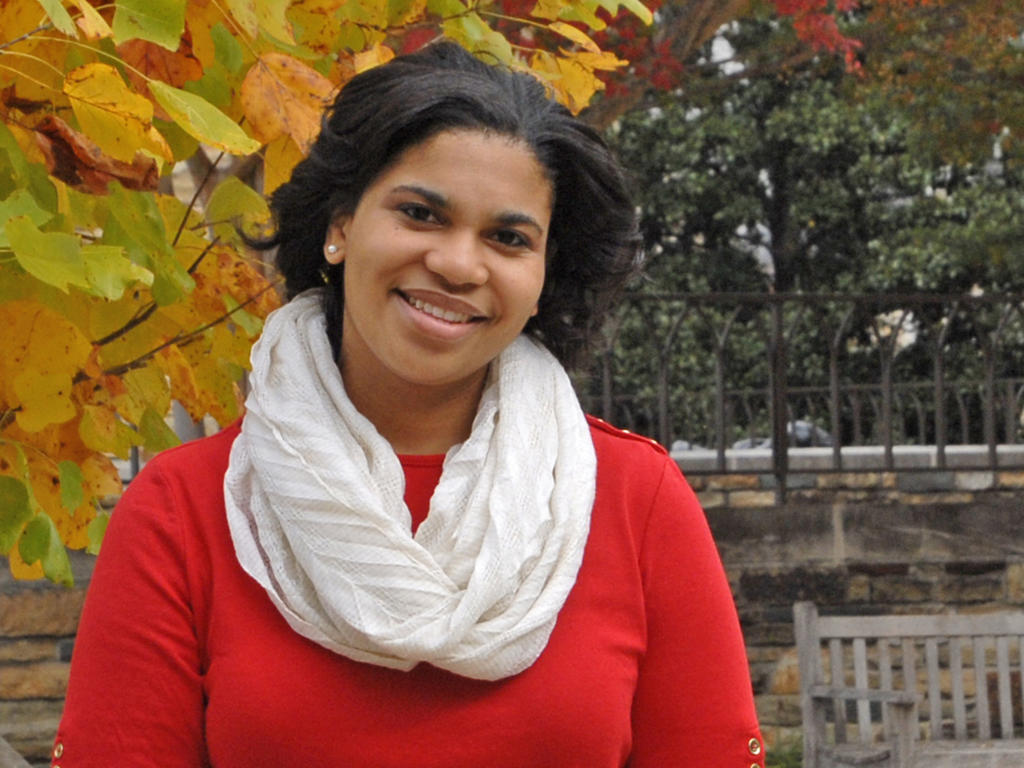Hometown: Woodville, MS
Majors: Mathematics and Spanish
Academic interests: Cancer epidemiology, mathematical epidemiology, and biostatistics
Extracurricular activities: Alpha Kappa Alpha Sorority, Inc.; Rhodes College Common Table; Black Student Association (BSA); Rhodes College Peer Assistants; 2014 Class Council.
Tell the story of how you got to Rhodes.
During my college search, I received admission information from Rhodes College, and I decided to take a tour of the campus. While taking the tour, I became captivated by the beautiful architecture of the buildings, and the stories of community and civic service.
A week after visiting Rhodes, I received a hand-written note from my tour guide thanking me for coming to Rhodes and wishing me the best in my future endeavors. This act of kindness ultimately convinced me that Rhodes was the best choice.
How have you changed since beginning your studies at Rhodes?
Since beginning my time at Rhodes, I have primarily matured academically. As a first year, I came to college thinking that my post-graduation plans had to be completely settled prior to entering my second year; however, this was not the case. My professors, academic advisors, and mentors advised and encouraged me to pursue my academic interests and from there develop a career goal.
Having the opportunity to explore a variety of course subjects through the liberal arts education has widened my perspective on a multitude of topics and has shaped my career goal. Rhodes has provided me with experiences that combine my academic interests with real-world experience. For example, in the classroom I learned various techniques for the mathematical modeling of biological applications. And, this past summer, I applied that knowledge to develop a mathematical model for the social networks of spotted hyenas.
Tell us more about the research you conducted this summer.
I got the opportunity to conduct applied mathematical research at the National Institute for Mathematical and Biological Synthesis at the University of Tennessee in Knoxville, where I collaborated with students from across the nation and with postdoctoral scholars to create a mathematical model of the social network within the spotted hyena societies of the Maasai Mara National Reserve in Kenya. Our goal was to examine how the matrilineal hierarchy within hyena society affects social network dynamics. Using network theory, we analyzed how the social rank of individuals and the number of social connections affect reproductive fitness. By creating a social network model of the spotted hyena population, our objective was to gain further understanding of the evolution of social networks and how they affect individual attributes.
How will this impact your academic/career goals?
Participating in this research experience has further shaped my academic and career goals. Through this experience, I was made aware that since I could combine mathematical modeling with the social networking of hyenas, I could also find a way to combine my interest in public health with my interests in mathematical modeling. I became more interested in the public health field through my studies of biomathematics when I learned that biomathematicians develop mathematical models of biological applications, which are used to test and extend biological theory. These models can examine a variety of topics such as immunology, ecology, and environmental toxicology. Within the public health field, I was seeking a career path that would allow me to fuse my interests in mathematics and my passion for public health, and a career in biostatistics allows me to do just that.
Currently, my academic research focuses on the fusion of public health, specifically cancer invasion, and mathematical modeling through the lens of mathematical epidemiology. As a career goal, I would like to focus on the blend of public health and mathematical modeling through biostatistics.
